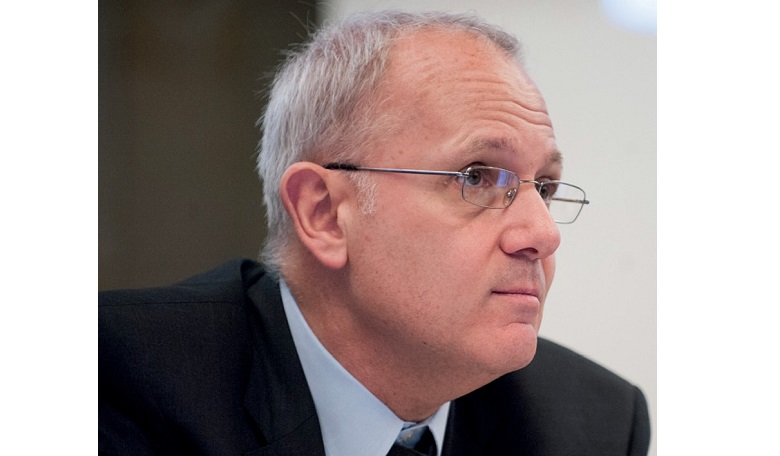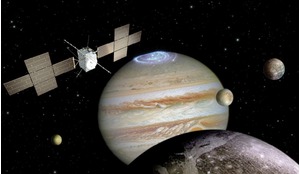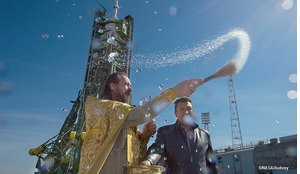A passionate advocate of space and astronautics, Jean-Yves Le Gall travels the globe tirelessly to promote the cause of astronautics in his roles as President of the French national space agency (CNES), Chair of the Council of the European Space Agency (ESA) and President of the International Astronautical Federation (IAF). Earlier in his career, whilst at the helm of Arianespace, he was the artisan of the technical procedures that delivered Ariane 5, Europe’s most successful launcher to date. Here, in conversation with ROOM’s Managing Editor, Clive Simpson, Mr Le Gall offers his unique personal perspective on the status and future direction of the global space industry.
What are the priorities of CNES?
CNES [Centre National d’Etudes Spatiales ] is the historical lead player in Europe and plays a prominent role in ESA. Our priorities for the coming years were confirmed in December 2015 and are now applied across our five fields of activity - launchers, science, observation, communications and defence. Our forward-looking strategy is based around this.
We have a budget [2017] of €2.3 billion and out of this we pay about €900 million to ESA. In terms of what is driving the priorities for CNES and its future I think that we have three key points which, incidentally, probably also drive space activities worldwide.
Now we have an approach which is bottom up - we go to potential users, ask them what they need and we try to develop exactly that
It seems that wherever I am in the world space strategy tends to fall always into three parts. The first one is common to all parties and is related to innovation. A few years ago we used to say technology was the key driver but now it is much more than technology, it is innovation.
The second point - and we have a very cruel reminder about this with what happened in the Caribbean and United States in the autumn of 2017 - is our climate.
Climate change is a reality and the real reason for what happened is down to a strong increase in temperature. Usually the southern Atlantic at that time of the year is around 27 Celsius, but this autumn it was 31 and because of this a simple tropical storm becomes a hurricane.
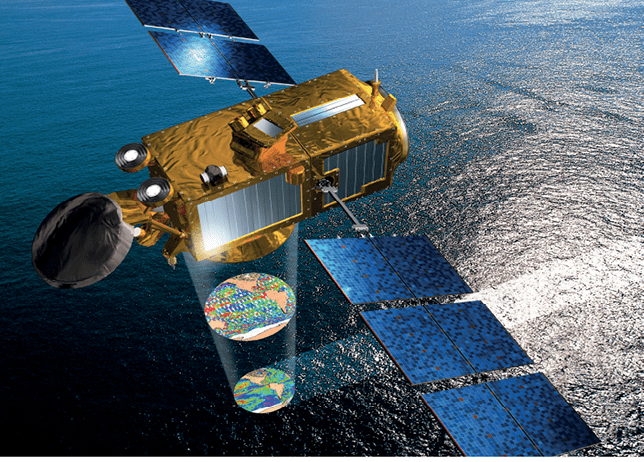 CNES/Ducros
CNES/Ducros
 Through CNES, France plays a key role on the international Jason -3 satellite launched in January 2016 to measure ocean surface topography. CNES headquarters in Paris are pictured below.
Through CNES, France plays a key role on the international Jason -3 satellite launched in January 2016 to measure ocean surface topography. CNES headquarters in Paris are pictured below.
So, the second major issue is climate and in that of course, France is leading the way with key programmes to limit the emissions of greenhouse gas, reduce carbon dioxide and monitor methane levels.
Our third priority is exploration - because exploration is the essence of space activity. When the first satellites were launched 60 years ago they allowed us to look at the universe and explore in new ways.
Today, these are the three foundation points - innovation, climate and exploration - and they form the backbone of our activities.
How do you see your role as head of the ESA Council?
This role is very interesting at a time which is challenging for ESA because we have a number of key and exciting decisions ahead. It is also a challenging time because of what is happening worldwide and because we have many newcomers across the space segment - today we have 60 space agencies in the world, whereas a few years ago we had just six. As well as emerging countries, we are also witnessing the NewSpace revolution which is bringing with it new approaches, new methods and new players.
In respect of expanding global competition and commercialisation, do space agencies have to change?
Yes, and at CNES we have already changed. Our role is now to focus on innovation and to develop the space systems of the future alongside the global NewSpace trend fuelled by innovation and application miniaturisation. In 2017 our motto became ‘Inventing the Future of Space’ and this is exactly what we are doing. Today, industry does not have so much money to invest and so we are developing new systems and we are very proud of that. We have led a very strong transformation of CNES during this last year and we are going to continue.
How is the approach to developing space systems evolving?
Today things are much more focused on applications. In fact, in the past, technology policy was driven by management policy and was very much top down, so it meant that we were first developing engineering and then inventing a space system. Only once the space systems were invented were we saying, “Hey guys, we invented the best space systems in the world, can you use it?’”
Now we have an approach which is bottom up - we go to potential users, ask them what do you need and we try to develop exactly what they need. This probably is the main difference between the top down and bottom up, and this is structuring the shape of CNES for the future.
This new policy encapsulates probably the two most important issues of space activity today - to connect and to observe. With the internet and the global goal of connecting some six billion people to high speed internet, it is clear that satellites are very useful for connectivity.
International cooperation beyond 2030 will evolve around the journey to Mars
Space also plays a very significant role in Earth observation as well. When you speak about the Internet of Things, you need to have up to date and detailed maps of Earth and so on - and only satellites can do that.
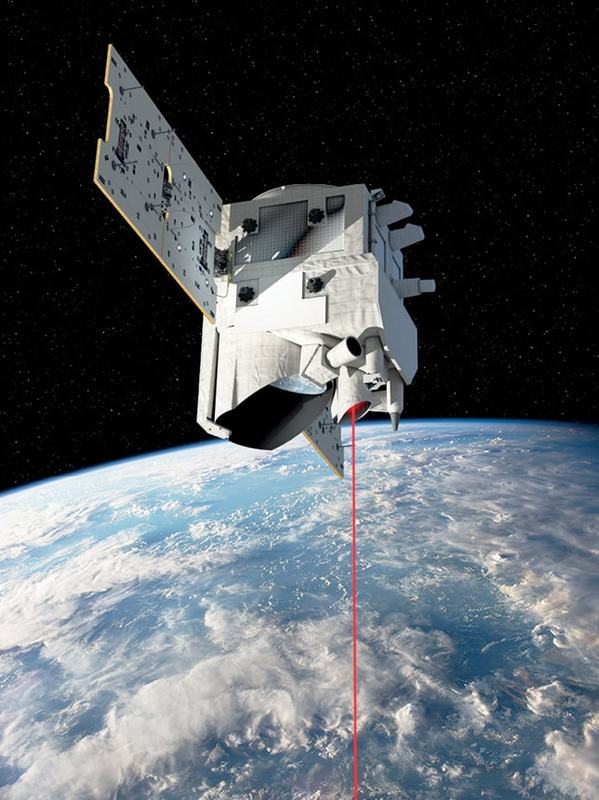 Merlin satellite.
Merlin satellite.
Will ‘Brexit’ have an impact on European space?
The result of the United Kingdom referendum obviously raises a number of issues and no one can be sure how things will turn out. I firmly believe the UK will remain part of the European space effort through ESA but, of course, the UK will probably have to leave EU space programmes. I think there will eventually be new European space policies without the UK - maybe that is a pity but it will be a fact.
How do you react to entrepreneurs like Elon Musk of SpaceX and Jeff Bezos of Blue Origin?
It is clear that they have brought a revolution for space activities but with different approaches. Elon Musk is probably much more, let us say, ‘business’ oriented. Jeff Bezos invests a lot of money and doesn’t speak publicly so much, though it is clear he also has a very, very exciting project. For Musk, I do not agree with all of what he says when he proposes to send a thousand people to Mars. But I observe that both he and Bezos have enjoyed significant successes so far. For Musk, in 2016 it was Mars, in 2017 it is the Moon - maybe in 2018 it will be the Earth.
Obviously they receive a lot of support from NASA, a lot of public money, but you cannot deny they have made impressive developments.
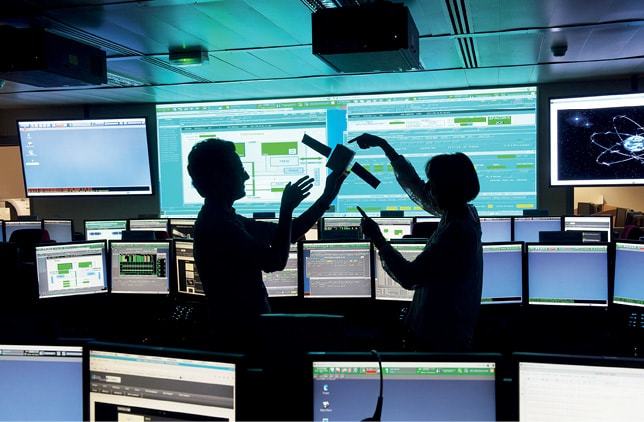 Galileo mission control centre.
Galileo mission control centre.
Does international cooperation have a future?
I think that the International Space Station [ISS] remains today the finest ever project of international cooperation in the technology arena. For the future I think international cooperation beyond 2030 will evolve around the journey to Mars.
It has been promoted and defined by NASA, and I think it is realistic because they speak about sending four to six people to Mars and then return them. They don’t speak about sending 1,000 people on a one-way colonisation trip.
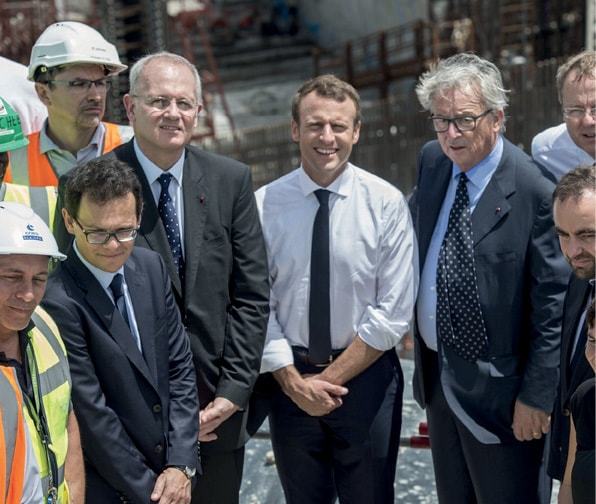 French President Emmanuel Macron was welcomed to the Guiana Space Centre (CSG) in French Guiana at the end of October 2017 by Jean-Yves Le Gall, the CSG’s Director Didier Faivre and other European space officials. Mr Macron was accompanied by Jean-Claude Juncker, President of the European Commission.
French President Emmanuel Macron was welcomed to the Guiana Space Centre (CSG) in French Guiana at the end of October 2017 by Jean-Yves Le Gall, the CSG’s Director Didier Faivre and other European space officials. Mr Macron was accompanied by Jean-Claude Juncker, President of the European Commission.
At CNES we’ve had good cooperation with the Russians, particularly on Soyuz which I am proud to have played a key role in during my tenure as head of Arianespace. There may, however, be less opportunities in the future because Russia now has some more issues on its domestic agenda.
China is very active in terms of space and of course I am sure that it is interested in joining the club of countries on the International Space Station. They have developed a space station, but it is very small. Of course, much will rest on politics but I am sure that in the next 10 years China will become more active in the international arena and I think that China will probably join us on the ISS.
I believe that in spite of some difficulties on security between the US and Russia we will continue to have cooperation on the ISS. With China, when things become easier, I think they will join the club of international space programmes.
What are the biggest challenges now facing the global space industry?
I see the global space industry as in a state of positive evolution not only because there are new applications, but also because there are projects and historical ESA programmes which are challenged by these new obligations.
Some people believe that geostationary satellites are perhaps becoming obsolete because of future large constellations. But the future of constellations it is not yet proven and geostationary satellites are doing pretty well.
So, it means that we have to be cautious because a lot of things are based on the developments of the past 60 years. Of course, they are not perfect but they exist and those who say that everything should change should be careful not to destroy everything because that might be a big mistake.
At CNES we have a technology support programme in place for industry because European manufacturers based in France are playing a key role supplying satellites for large constellations.
But there’s a big debate about the role of constellations and geostationary satellites in delivering services such as broadband to the widest number of people. We’re certainly helping to shape that debate and I don’t want to take sides.
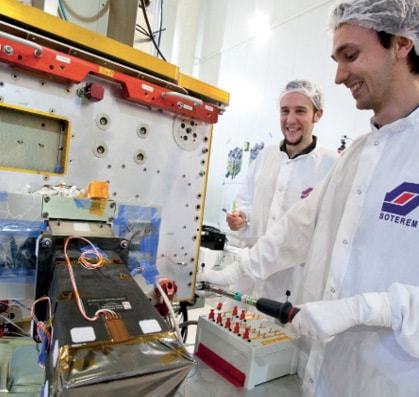 CNES Taranis satellite, scheduled to be launched in 2019, will provide valuable data on transient luminous events (TLEs) in the upper atmosphere, variously called ‘elves’, ‘sprites’ and ‘blue jets’ which currently remain shrouded in mystery.
CNES Taranis satellite, scheduled to be launched in 2019, will provide valuable data on transient luminous events (TLEs) in the upper atmosphere, variously called ‘elves’, ‘sprites’ and ‘blue jets’ which currently remain shrouded in mystery.
Looking further ahead, what do you see?
Just as our world is changing, the space world is changing too - often very, very quickly. When I started my term at CNES about five years ago many people thought national space agencies might disappear because of all these changes worldwide. But five years later we haven’t disappeared. Quite the contrary, I would say that we are alive and kicking.
There is definitely a role for space agencies in the future of global space. Obviously we’ve gone from very few space agencies to something like 60, and a lot of them are very young. If I had advice for them, I would say the key is to work with experienced people and develop your skills because space is definitely the place to be.





